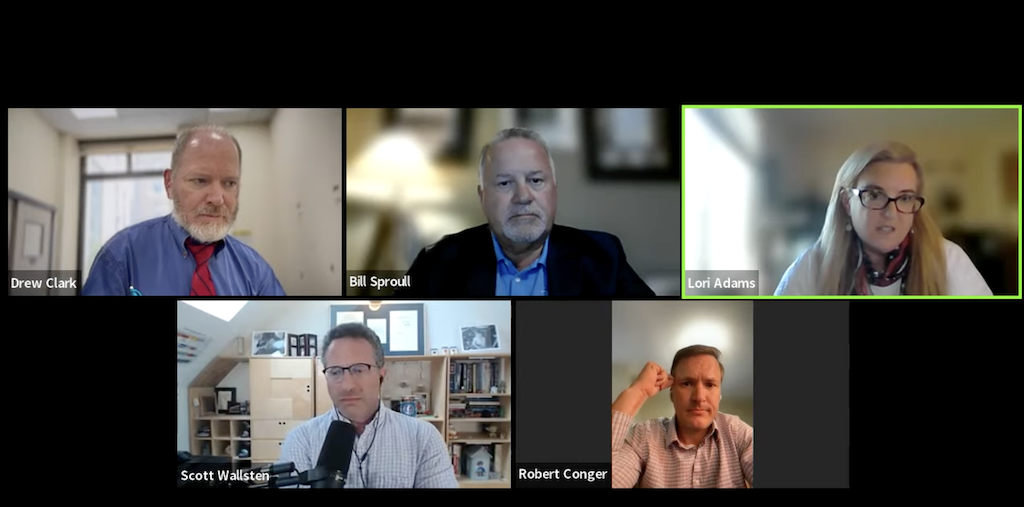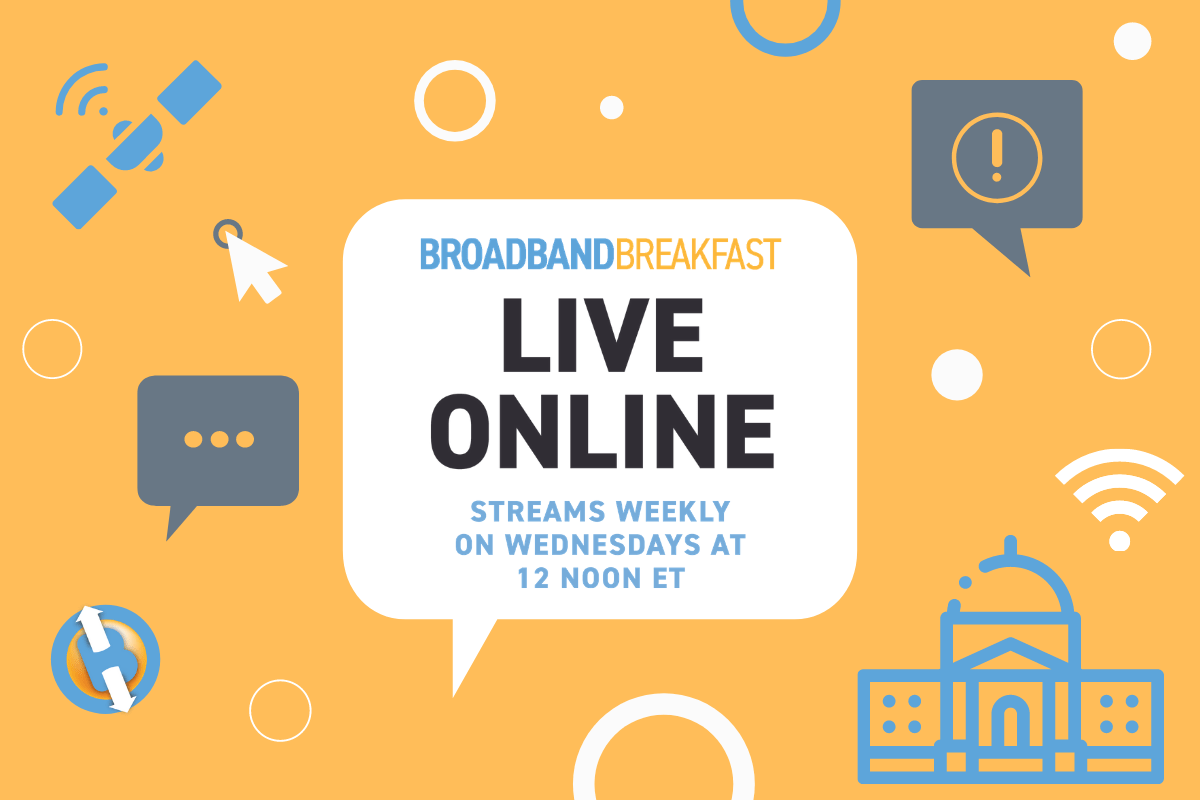Proposed Buy America Waiver Makes BEAD Projects Feasible, Say Fiber Manufacturers
Experts said the waiver will make it more practical for BEAD projects to comply with Buy America rules.
Jake Neenan

WASHINGTON, August 30, 2023 – The National Telecommunications and Information Administration’s proposed waiver on some domestic manufacturing requirements will help broadband companies complete Broadband Equity, Access and Deployment projects on time, but costs will remain high, telecom equipment manufacturers said Wednesday.
“It’s much easier to meet the manufacturing requirements as they are defined in the waiver,” said Lori Adams, vice president of broadband policy and funding strategy at Nokia, speaking at a Broadband Breakfast Live Online event.

On August 3, Nokia announced the Kenosha, Wisconsin-based manufacturing of key electronic components for fiber-optic broadband networks that are still required under the Buy America program.
“I don’t think we’re done,” said Will Arbuckle, a policy advisor at the NTIA, speaking about U.S.-based manufacturing announcements at another event on the subject on Wednesday. “I’m confident there are going to be more companies announcing domestic investment and job creation in the U.S. for the BEAD program.”
The White House’s Build America, Buy America provision – codified in the Infrastructure, Investment and Jobs Act – places two requirements on federally funded projects: 55% of the component cost must be spent with American suppliers, and materials must be manufactured in the United States.
This raised questions among the industry about the feasibility of expanding broadband internet infrastructure with BEAD funding. Fiber-optic connections, the fastest, highest capacity broadband technology that is expected to make up the majority of BEAD projects, will require equipment using semiconductors that are not manufactured in the U.S. at scale, say industry officials.
The proposed waiver would allow BEAD recipients meet the comply with the rules without having to worry about the semiconductor content of its equipment. Further, the waiver does away with the 55 percent component cost rule for pieces of the fiber-optic electrical equipment defined in the proposed waiver.
This will make it more practical for BEAD projects to comply with BABA requirements, these experts said.
“Now, if you told us ‘Hey, everything’s got to be ready to go by the end of this year,’ that wouldn’t be a problem,” said Robert Conger, general manager of software platforms and strategy at Adtran, an Alabama-based fiber equipment company. In addition to appearing on the Broadband Breakfast Live Online panel, Conger also spoke on another panel on the implications of the proposed BABA waiver hosted by FTI Consulting.
One component of fiber connection is not covered by the waiver: Fiber optic cables. Sourcing and manufacturing fiber in the U.S. is doable. Still, that will raise the costs of BEAD projects said Scott Wallsten, president of the Technology Policy Institute, speaking at the Broadband Breakfast event.
“If it didn’t increase costs, you wouldn’t need it as a condition,” he said. “We’ve got something that really helps fiber manufacturers, but not as much the customers.”
Other panelists argued efficiency and job creation are worth the higher costs, citing increased investments in American fiber manufacturing to meet the upcoming demand. The major cable manufacturer Corning announced a new North Carolina plant in June and Prysmian plans to convert a dated copper manufacturing facility to produce fiber optic cable.
The comment period for the proposed waiver is open until September 21.
Our Broadband Breakfast Live Online events take place on Wednesday at 12 Noon ET. Watch the event on Broadband Breakfast, or REGISTER HERE to join the conversation.

Wednesday, August 30, 2023 – Build America, Buy America
A new wave of activity in the domestic manufacturing market for fiber and electronic materials is happening. Companies including Nokia, CommScope, Corning and others have detailed investments to bring electronics and fiber manufacturing back to the U.S.A. A draft limited Buy America waiver was issued for BEAD projects on August 22. What are initial reactions to the draft waiver? Is there enough time to allay worries that the Buy America Act can delay deployment timelines and increase project costs?
Panelists
- Robert Conger, General Manager of Software Platforms and Strategy, Adtran
- Lori Adams, Vice President of Broadband Policy & Funding Strategy, Nokia
- Bill Sproull, Broadband Stimulus Consultant, DZS
- Scott Wallsten, President, Technology Policy Institute
- Drew Clark (moderator), Editor and Publisher, Broadband Breakfast

As General Manager of Software Platforms and Strategy, Robert Conger is responsible for developing the strategy, portfolio, and direction for the company’s global business while also leading the development of Adtran’s software platforms. Robert joined Adtran in 2000 and has served in a wide range of roles, including his most recent role as Senior Vice President of Technology and Strategy. Robert holds a Masters in Business Administration from Vanderbilt University and a Bachelor of Science in Electrical Engineering from the University of Tennessee.
As Vice President of Broadband Policy and Funding Strategy, Lori Adams is a key member of the Nokia Government Affairs Americas Team. She is responsible for developing strategies and tools to enable increased company participation in state, federal, and international programs supporting infrastructure deployment by several of Nokia’s business organizations. Additionally, she focuses on external government relations and communications with stakeholders at all levels of government through direct engagement, filings, and participation in public forums.
Bill Sproull is a broadband stimulus expert who leads DZS’s outreach efforts to federal and state broadband funding programs and our customers who want to apply for these funds. Bill has worked with the telecom industry for over two decades in an executive economic development and trade association capacity. Texas Governor Greg Abbott asked him to be the first Chair of his Governor’s Broadband Development Council, during which time he and his colleagues developed the Texas strategy for broadband deployment, creation of the state’s first broadband office and fund, all of which was adopted unanimously by the Texas legislature.
Scott Wallsten is President and Senior Fellow at the Technology Policy Institute and also a senior fellow at the Georgetown Center for Business and Public Policy. He is an economist with expertise in industrial organization and public policy, and his research focuses on competition, regulation, telecommunications, the economics of digitization, and technology policy. He holds a Ph.D. in economics from Stanford University.
Breakfast Media LLC CEO Drew Clark has led the Broadband Breakfast community since 2008. An early proponent of better broadband, better lives, he initially founded the Broadband Census crowdsourcing campaign for broadband data. As Editor and Publisher, Clark presides over the leading media company advocating for higher-capacity internet everywhere through topical, timely and intelligent coverage. Clark also served as head of the Partnership for a Connected Illinois, a state broadband initiative.

WATCH HERE, or on YouTube, Twitter and Facebook.

As with all Broadband Breakfast Live Online events, the FREE webcasts will take place at 12 Noon ET on Wednesday.
SUBSCRIBE to the Broadband Breakfast YouTube channel. That way, you will be notified when events go live. Watch on YouTube, Twitter and Facebook.
See a complete list of upcoming and past Broadband Breakfast Live Online events.









Member discussion